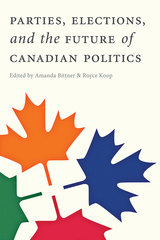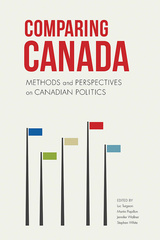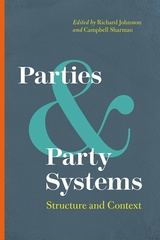
The idea of political unity – or belonging – contains its own opposite, because a political community can never guarantee the equal status of all its members. The price of belonging is an entrenched social stratification and hierarchy within the political unit itself.
In Lived Fictions, John Grant explores the ways in which we imagine political unity can be achieved. The Canadian notion of progressive politics and social cohesion generates a collective commitment to imagining how society is structured. These political imaginaries – the citizen-state, the market economy, charters of rights, and so forth – are the lived fictions that bind us together. They orient our sense of national identity and shape our understanding of political legitimacy, responsibility, and action. Grant also persuasively details why the project of political unity must fail: it distorts our lived experiences and allows harmful relations of inequality and domination to take root.
Canada promises unity through democratic politics, reconciliation with Indigenous peoples, a welfare state that protects the vulnerable, and a multicultural approach to cultural relations. This book documents the historical failure of these promises and elaborates the kinds of institutional and intellectual changes needed to overcome our lived fictions.
This book will find a keen audience among students and scholars of Canadian politics, political theory, and Indigenous politics.
In this book, John Grant accomplishes several achievements, any of which would be impressive on their own.
[Grant's] analysis brilliantly redefines the boundaries of scholarly interrogation on questions of belonging and inequality.
John Grant demonstrates once again how important it is to bring the full resources of contemporary political theory to bear on Canadian problems. With full attention to the complex legacy of Western political thought, he critiques the ‘lived fictions’ of constitutionalism, Crown sovereignty, neoliberalism, and multiculturalism now manifest in Canada, and articulates democratic alternatives already present in our emergent political imaginaries. As such, he offers reasons for hope in what others have perceived as dark times.
Constitutionalism, the welfare state, multiculturalism, and reconciliation between Indigenous peoples and non-Indigenous Canadians. Aren’t these the hallmarks of Canada’s basic decency as a democratic society? With sparkling clarity and philosophical depth, Grant shows how each of these ‘lived fictions’ of social unity also functions to mask unjust exclusions and inequalities – and helps us to reimagine a Canada whose democratic promise might be fulfilled.
This fascinating exploration challenges conventional wisdom and paves the way for thinking about belonging and inequality in new and constructive ways.
Introduction: Unity and Politics
Part 1: Imagining Unity and Exclusion
1 Becoming One: Visions of Political Unity
2 On the Critique of Political Imaginaries
Part 2: Lived Fictions in Canadian Politics
3 A People without Sovereignty: Canada’s Constituent Power Problem
4 The Crown and the Aboriginal: Imaginaries of Sovereignty and Control
5 Embedded Neoliberalism: A New Imaginary for the Welfare State
6 Canada’s Multiverse: The Dis/Unity of Cultures
7 Institutions and Actions: A Vision of Democratization
Conclusion: Critique and Politics – Or, What Makes a Birthday Party Memorable
Notes; Selected Bibliography; Index















